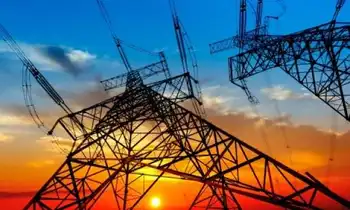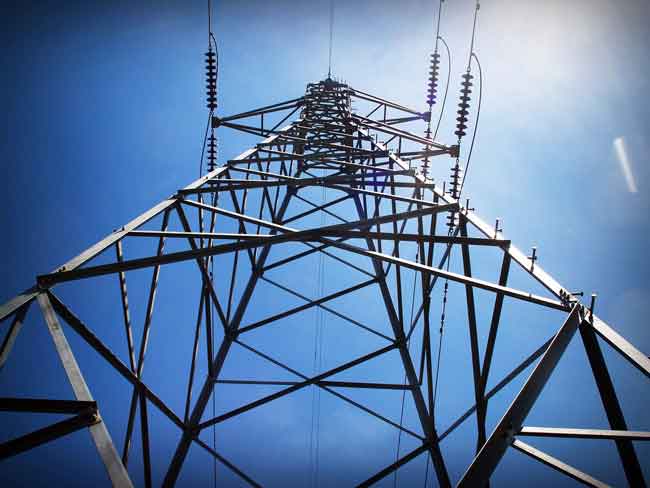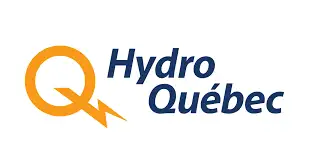London Underground Power Outage 2025 disrupted Tube lines citywide, with a National Grid voltage dip causing service suspensions, delays, and station closures; TfL recovery efforts spotlight infrastructure resilience, contingency planning, and commuter safety communications.
Key Points
A citywide Tube disruption on May 12, 2025, triggered by a National Grid voltage dip, exposing resilience gaps.
✅ Bakerloo, Waterloo & City, Northern suspended; Jubilee disrupted.
✅ Cause: brief National Grid fault leading to a voltage dip.
✅ TfL focuses on recovery, communication, and resilience upgrades.
On May 12, 2025, a significant power outage disrupted the London Underground during the afternoon rush hour, affecting thousands of commuters across the city. The incident highlighted vulnerabilities in the city's transport infrastructure, echoing a morning outage in London reported earlier, and raised concerns about the resilience of urban utilities.
The Outage and Its Immediate Impact
The power failure occurred around 2:30 PM, leading to widespread service suspensions and delays on several key Tube lines. The Bakerloo and Waterloo & City lines were completely halted, while the Jubilee line experienced disruptions between London Bridge and Finchley Road. The Northern line was also suspended between Euston and Kennington, as well as south of Stockwell. Additionally, Elizabeth Line services between Abbey Wood and Paddington were suspended. Some stations were closed for safety reasons due to the lack of power.
Commuters faced severe delays, with many stranded in tunnels or on platforms. The lack of information and communication added to the confusion, as passengers were left uncertain about the cause and duration of the disruptions.
Cause of the Power Failure
Transport for London (TfL) attributed the outage to a brief fault in the National Grid's transmission network. Although the fault was resolved within seconds, it caused a voltage dip that affected local distribution networks, leading to the power loss in the Underground system.
The incident underscored the fragility of the city's transport infrastructure, particularly the aging electrical and signaling systems that are vulnerable to such faults, as well as weather-driven events like a major windstorm outage that can trigger cascading failures. While backup systems exist, their capacity to handle sudden disruptions remains a concern.
Broader Implications for Urban Infrastructure
This power outage is part of a broader pattern of infrastructure challenges facing London. In March 2025, a fire at an electrical substation in Hayes led to the closure of Heathrow Airport, affecting over 200,000 passengers, while similar disruptions at BWI Airport have underscored aviation vulnerabilities. These incidents have prompted discussions about the resilience of the UK's energy and transport networks.
Experts argue that aging infrastructure, coupled with increasing demand and climate-related stresses, poses significant risks to urban operations, as seen in a North Seattle outage and in Toronto storm-related outages that tested local grids. There is a growing call for investment in modernization and diversification of energy sources to ensure reliability and sustainability.
TfL's Response and Recovery Efforts
Following the outage, TfL worked swiftly to restore services. By 11 PM, all but one line had resumed operations, with only the Elizabeth Line continuing to experience severe delays. TfL officials acknowledged the inconvenience caused to passengers and pledged to investigate the incident thoroughly, similar to the Atlanta airport blackout inquiry conducted after a major outage, to prevent future occurrences.
In the aftermath, TfL emphasized the importance of clear communication with passengers during disruptions and committed to enhancing its contingency planning and infrastructure resilience.
Public Reaction and Ongoing Concerns
The power outage sparked frustration among commuters, many of whom took to social media to express their dissatisfaction, echoing sentiments during Houston's extended outage about communication gaps and delays. Some passengers reported being trapped in tunnels for extended periods without clear guidance from staff.
The incident has reignited debates about the adequacy of London's transport infrastructure and the need for comprehensive upgrades. While TfL has initiated reviews and improvement plans, the public remains concerned about the potential for future disruptions and the city's preparedness to handle them.
The May 12 power outage serves as a stark reminder of the vulnerabilities inherent in urban infrastructure. As London continues to grow and modernize, ensuring the resilience of its transport and energy networks will be crucial. This includes investing in modern technologies, enhancing communication systems, and developing robust contingency plans to mitigate the impact of future disruptions. For now, Londoners are left reflecting on the lessons learned from this incident and hoping for a more reliable and resilient transport system in the future.
Related News












